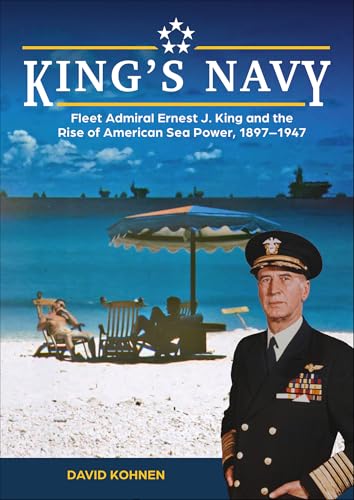
The Second Most Powerful Man in the World
by Phillips Payson O'Brien
"The Life of Admiral William D. Leahy, Roosevelt's Chief of Staff"
Popularity
4.53 / 5
* A book's popularity is determined by how it compares to all other books on this website.
Where to buy?
Buy from Amazon* If you buy this book through the link above, we may receive a small commission at no extra cost to you.
The Second Most Powerful Man in the World by Phillips Payson O'Brien
Details
War:
World War II
Perspective:
Commanders
Military Unit:
US Navy
True Story:
Yes
Biography:
Yes
Region:
North America
Page Count:
546
Published Date:
2020
ISBN13:
9780399584824
Description
Main Themes and Topics
"The Second Most Powerful Man in the World" by Phillips Payson O'Brien is a compelling biography of Admiral William D. Leahy, a figure largely overlooked in historical narratives of World War II despite his significant influence. The book centers on Leahy's role as Franklin D. Roosevelt's Chief of Staff and advisor, highlighting his substantial impact on wartime strategies and decisions. O'Brien delves into the dynamics of power within the U.S. government during the war, illustrating how Leahy's quiet yet profound influence shaped key military and political outcomes. The author argues that while other military leaders were engaged in the theater of war, Leahy was crucial in crafting the underlying strategies that directed American efforts both in Europe and the Pacific.
Writing Style and Tone
Phillips Payson O'Brien's writing style in this biography is both engaging and meticulously researched. He balances a scholarly approach with accessible prose, making complex historical and political contexts understandable to a broad audience. O'Brien's tone is reverent yet analytical, showing appreciation for Leahy’s contributions while critically examining his influence on wartime decisions. The narrative is supported by extensive references and quotes, which enrich the storytelling and provide depth to the portrayal of Leahy as an unsung hero of WWII.
Awards and Recognition
"The Second Most Powerful Man in the World" has received praise for its contribution to historical literature, particularly in redefining the understanding of wartime leadership during Franklin D. Roosevelt's presidency. Notable historians and scholars, including John Lewis Gaddis and Madeleine Albright, have acknowledged the book’s depth and insight. It is celebrated for shedding light on a pivotal yet underappreciated figure in American history and has been recommended for readers interested in military history and presidential studies.
Brief Summary
Phillips Payson O'Brien's biography of Admiral William D. Leahy presents an in-depth look into the Admiral’s critical role as Franklin D. Roosevelt's Chief of Staff during the tumultuous times of World War II. The book unravels Leahy's close relationship with FDR, detailing how he became Roosevelt's most trusted advisor. O'Brien highlights significant wartime decisions and strategies influenced by Leahy, emphasizing his role in shaping events from the invasions of North Africa and France to resource allocations in the Pacific. The biography showcases how Leahy's quiet expertise and counsel were instrumental in driving wartime policies, making him an indispensable figure in the Roosevelt and early Truman administrations.
Criticism
While "The Second Most Powerful Man in the World" has been widely praised, some critiques mention that the book may lean heavily on re-evaluating historical perspectives to emphasize Leahy's role, potentially overlooking other factors that might have influenced decision-making processes. Additionally, a few readers have noted that the focus on Leahy's accomplishments might overshadow the collaborative nature of wartime leadership, where multiple advisors contributed to decisions collectively. Nonetheless, these criticisms do not diminish the book’s value as a significant addition to historical discourse, especially regarding Admiral Leahy's legacy.









